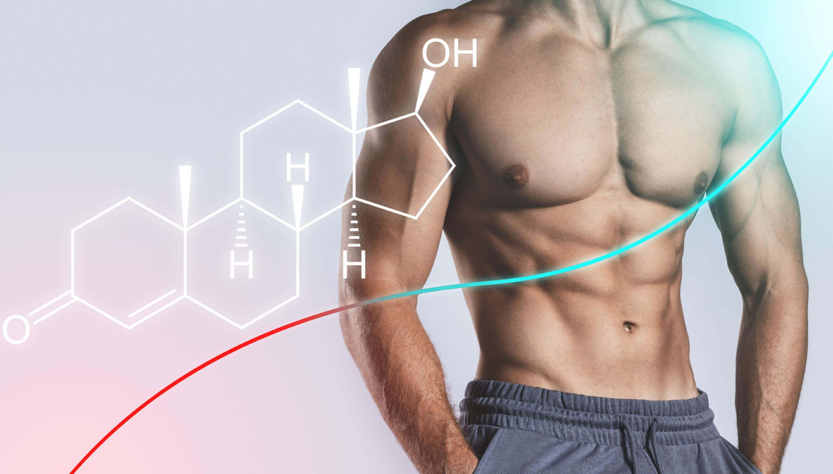Testosterone is a vital hormone that plays a crucial role in men’s health, influencing various physical and psychological functions. As men age, testosterone levels naturally decline, which can lead to a range of health issues, including reduced energy, decreased libido, and diminished overall well-being. Male testosterone therapy has emerged as an effective solution to counter these age-related changes and improve quality of life. This article explores the benefits of male testosterone therapy, its impact on health, and considerations for those considering this treatment.
Understanding Testosterone and Its Role in Men’s Health
Testosterone is the primary male sex hormone responsible for regulating a variety of functions, including muscle mass, bone density, red blood cell production, and sexual function. It also affects mood, cognitive abilities, and energy levels. A decline in testosterone levels, known as andropause, can lead to symptoms such as fatigue, depression, decreased libido, and reduced muscle strength.
Symptoms of Low Testosterone
Low testosterone levels can manifest in various ways, often impacting both physical and mental health. Common symptoms include:
- Decreased energy levels:Men with low testosterone may experience persistent fatigue and reduced stamina, making it challenging to maintain an active lifestyle.
- Loss of muscle mass:Testosterone plays a critical role in muscle development and maintenance. A decline in this hormone can lead to muscle loss and increased body fat.
- Reduced libido:Testosterone is essential for sexual desire and function. A decrease in testosterone can lead to a diminished sex drive and erectile dysfunction.
- Mood changes:Low testosterone levels can contribute to mood swings, irritability, and even depression.
- Cognitive decline:Some men with low testosterone may experience difficulties with memory, concentration, and cognitive performance.
The Benefits of Male Testosterone Therapy
Male Testosterone therapy, also known as testosterone replacement therapy (TRT), involves supplementing the body with synthetic or bioidentical testosterone to restore levels to a healthier range. This therapy can significantly improve the quality of life for men experiencing symptoms of low testosterone.
Enhanced Energy and Vitality
One of the most noticeable benefits of testosterone therapy is the restoration of energy levels. Men undergoing TRT often report increased stamina and the ability to engage in physical activities that were previously challenging. This renewed vitality can lead to a more active and fulfilling lifestyle, contributing to overall well-being.
Improved Sexual Function
Testosterone plays a crucial role in male sexual health, influencing libido and erectile function. Testosterone therapy can enhance sexual desire and performance, helping to rekindle intimacy in relationships. Many men report a significant improvement in their sexual health and satisfaction following TRT.
Increased Muscle Mass and Strength
Testosterone is essential for muscle growth and maintenance. By restoring testosterone levels, TRT can help men regain muscle mass and strength, leading to improved physical fitness and body composition. This can also reduce the risk of obesity-related health issues, such as cardiovascular disease and diabetes.
Better Mood and Cognitive Function
Mood regulation is another area where testosterone plays a significant role. Low testosterone levels have been linked to depression, anxiety, and mood swings. TRT can alleviate these symptoms, leading to improved emotional well-being. Additionally, some studies suggest that testosterone therapy may enhance cognitive function, including memory and concentration, potentially reducing the risk of cognitive decline in older men.
Considerations and Risks of Male Testosterone Therapy
While testosterone therapy offers numerous benefits, it is essential to approach it with caution and under the guidance of a healthcare professional. Not all men with low testosterone are suitable candidates for TRT, and the therapy may not be appropriate for those with certain medical conditions, such as prostate cancer or cardiovascular disease.
Potential Side Effects
Like any medical treatment, testosterone therapy carries potential side effects. These may include:
- Acne and oily skin:Increased testosterone levels can lead to skin changes, including acne.
- Sleep apnea:TRT may exacerbate sleep apnea in some individuals.
- Prostate issues:Testosterone therapy can cause the prostate to enlarge, leading to urinary problems. It is crucial to monitor prostate health regularly while undergoing TRT.
- Cardiovascular risks:Some studies suggest a potential link between testosterone therapy and an increased risk of cardiovascular events. However, the evidence is not conclusive, and further research is needed.
Importance of Medical Supervision
Before starting testosterone therapy, it is vital to undergo a thorough medical evaluation to determine whether TRT is appropriate. A healthcare provider will assess testosterone levels, overall health, and any underlying conditions that may contraindicate therapy. Regular monitoring is also necessary during treatment to ensure optimal results and minimize risks.
Conclusion
Male testosterone therapy offers a promising solution for men experiencing the negative effects of low testosterone levels. By restoring energy, enhancing sexual function, increasing muscle mass, and improving mood, TRT can significantly enhance quality of life. However, it is essential to approach this therapy with caution, under the guidance of a healthcare professional, to ensure safety and effectiveness. For men struggling with the symptoms of low testosterone, testosterone therapy may be the key to reclaiming vitality and well-being.
